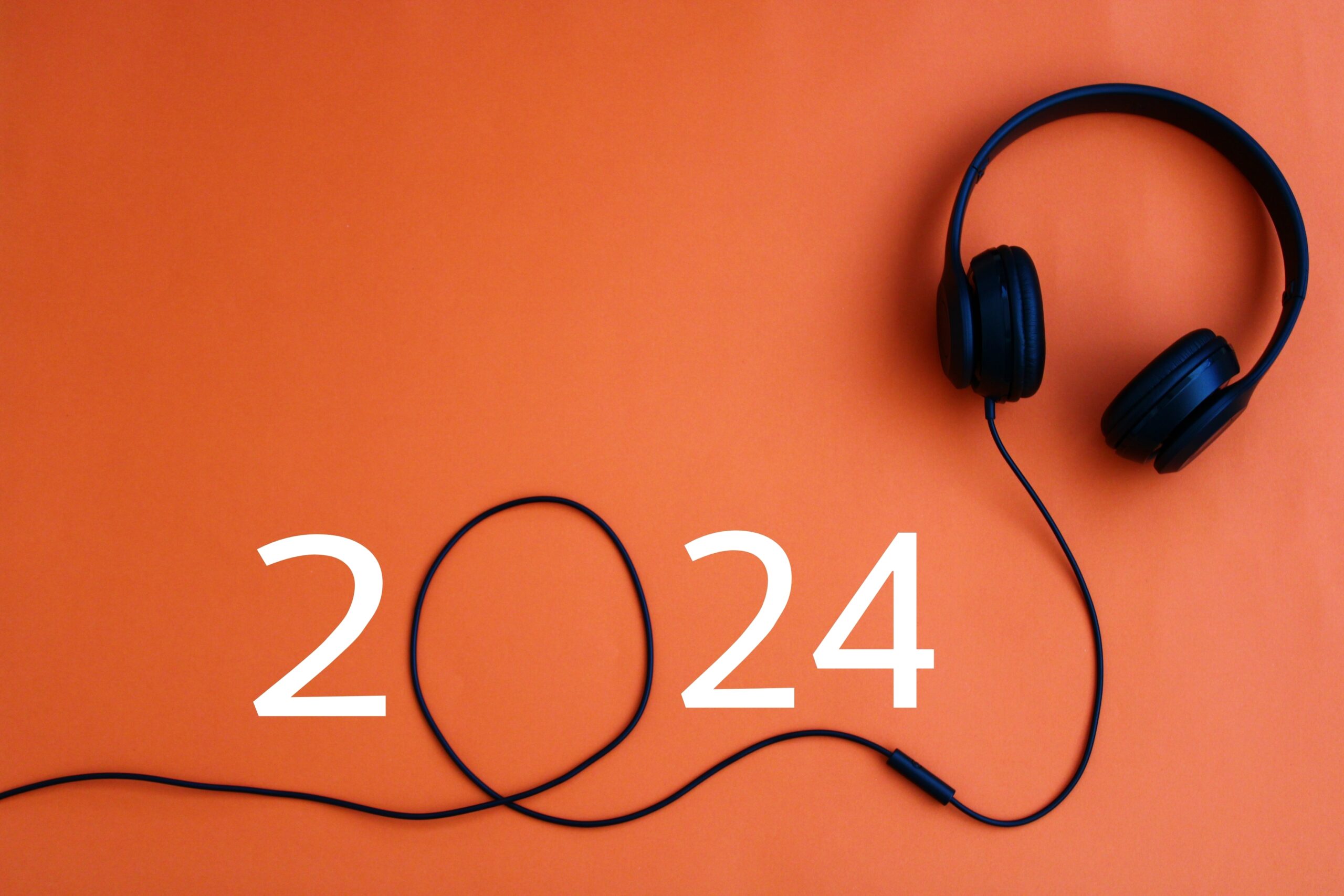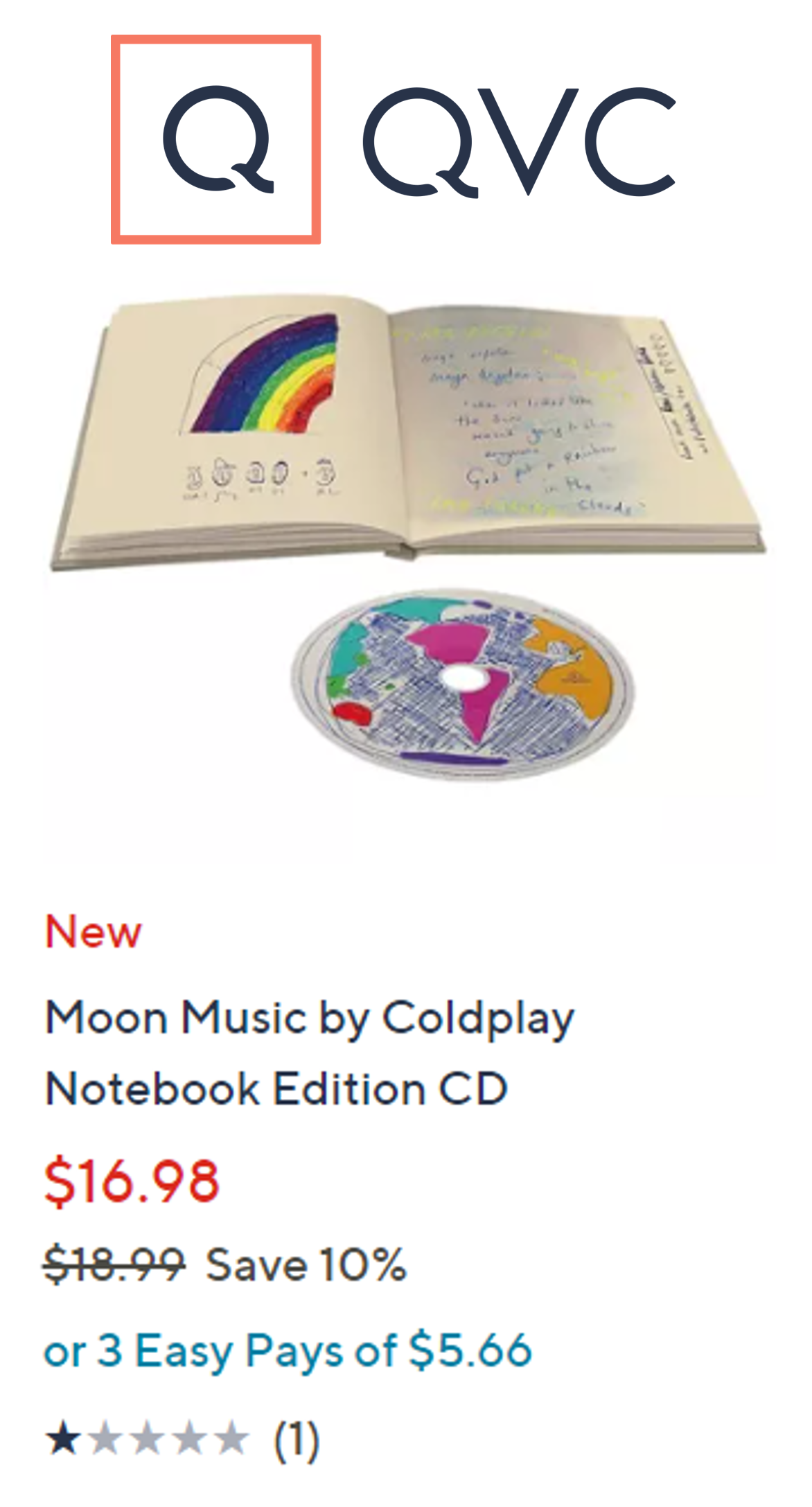
It’s a question that’s been bandied about since the dawn of the streaming era:
Does radio still make – or break – a new song?
I’ve heard the debates, and I’ve participated in them. Earlier this year, I wrote a post that talked about that point on the exposure curve where the label (or artist) feel they have sufficient streams to warrant a full-scale radio promotion. The days of starting new projects on the radio are becoming as common as live DJs on the weekends.
But what happens when artists not only circumvent radio at the outset of their campaign as well as other exposure avenues to try completely novel concepts? And what happens when the artist in questioned isn’t an Indie act or a “baby band” but one of the most popular acts of the past 25 years.
Like Coldplay.
These guys have won 7 Grammys, sold 100 million albums worldwide, and have no shortage of hardcore fans and amazing brand awareness. But for their first album release since 2021’s Music of the Spheres, they decided to try something different. The new album is Moon Music, and Chris Martin and band were looking for a new way to not only expose it, but to sell several thousand albums in just one day.
And so Coldplay set up a promotion on QVC – that’s right, the television shopping network with millions of viewers, many of whom are undoubtedly fans. In fact, the band’s leader, Chris Martin, joked the reason the band is hawking albums on QVC is “because we’re older now, we’re moving into crockery and Tupperware. The music is really just serving our kitchen line now.”
network with millions of viewers, many of whom are undoubtedly fans. In fact, the band’s leader, Chris Martin, joked the reason the band is hawking albums on QVC is “because we’re older now, we’re moving into crockery and Tupperware. The music is really just serving our kitchen line now.”
But maybe even more QVC viewers haven’t the slightest idea who or what Coldplay is. The band was formed way back in 1997, so people who still are unaware of them just may have been exposed to Coldplay for the first time on QVC while shopping for something else.
It’s a different world than the one that existed three years ago when Coldplay released Music of the Spheres.
Back then, Radio Ink ran a story ironically titled “Coldplay Understands The Power of Radio,” highlighting a Z100 promotion that even tossed in an Empire State Building value added light/music show to promote the album. A lot has obviously changed in 2024 about how Coldplay is approaching their marketing challenges.
In the UK, in particular, Coldplay’s promotional ploy on an American TV shopping network last week was met with derision. Of course, the band is laughing all the way to the bank. (In commemoration of this promotional event, Coldplay also promoted a Moon Music toaster and matching tea set.
For radio, this should come as no surprise. The percentage of fans who listen to radio for new music has been slip-sliding away for years. But now, it looks like given all the pathways of exposure, artists may get more creative to not only gain exposure – and maybe even sell some physical music.
In addition to the QVC appearance, Martin showed up disguised as a busker named “Nigel” with Jimmy Fallon on the Tonight Show. Hey, as long as you’re in America, you may as well make all the stops.
For all the criticism of Coldplay’s efforts to ring the register, the band engaged with the QVC audience in novel ways. They could have just offered up a discount on Moon Music and let the sales-friendly QVC hosts sell their albums.
Instead they showed up, the hung out, they drank tea, and (despite technical issues), took calls from excited fans.
On the short video below you can watch a call come in from Candy from Florida (long-time fan, first time caller) who told Martin and company she had tickets to see the band back in 2008, but her father passed away and she never made the show.
On the spot, Martin dreamed up a song on the spot and serenaded Candy, a far better experience than using an AI song generator like Suno AI (see note at end of this post).
The sales figures vary – wildly – by the news source: the Verge says 6,500 pieces were sold, but a BBC story say QVC host Jennifer Coffey claimed 31,000 shoppers were in the market for Moon Music on their site.
It is all testament to the idea that brands are looking to generate more impact for their products in nontraditional ways. Vice President Harris is adopting a similar tactic this week, sitting down for interviews with Howard Stern, Steven Colbert and podcasts, rather than going the conventional route on CNN or even a show like Face The Nation.
For Coldplay, they’ll take whatever “adds” they get this week on American radio stations (as well as radio around the globe). But the fact is, this is another experiment in evaluating other pathways to not only expose music, but to market it to consumers.
It suggests that if contemporary radio stations wish to remain relevant, it will come down to more than weekly “spin counts” and “win-it-before-you-can-buy-it” contests. How can radio programmers and marketers devise promotions that will resonate with artists, their management teams, and their labels?
This means creativity, collaboration, and cleverness – elements that often go missing in the construction of radio promotions these days. In order to compete in a marketplace where anybody can be a marketer, radio will have to work harder to stay in the game.
Or else be left out in the cold.
AI footnote: Suno AI is one of many music creation engines that uses artificial intelligence technology to write songs. Our Chris Brunt has been playing with this technology for some time now. You can check out his Suno “sandbox” here in his “AI Edge” newsletter, which I also invite you to subscribe to. Sign up for it here.
Watching Chris Martin conjure up a simple little number live on QVC is another reminder that even with quantum advances, human beings will always write better songs. At least we can hope so.
And a big “thank you” to Luminate guru Haley Jones who has a knack for finding fascinating music stories along the techno highway. Luminate has a great newsletter than comes out every Tuesday I also highly recommend. Subscribe here.
- Will Radio Jump On TikTok’s “Silver Express?” - May 27, 2025
- Memorial Day 2025 – The Year Of Standing On Shaky Ground - May 23, 2025
- To Win In Radio, Make A Difference - May 22, 2025




Always thoughtful, Fred.
The train has left the station on new music discovery for radio. Case and point:
Billy Strings just played two sold-out shows at Pine Knob Music Theatre near Detroit. I tried to find a commercial terrestrial radio station within a 75-mile radius of the theater that plays Billy Strings. There is not one.
Radio has trained people to go elsewhere to discover music. Apparently, there is an appetite for this artist (local, mind you); however, he was found elsewhere by tens of thousands of fans besides terrestrial radio.
But performers have been selling out venues with zero radio airplay for many decades. Like the Grateful Dead in the 1970’s. I recall seeing Simple Minds at the Channel in Boston, it was sold out, packed with over 1000 people, many years before their hit “Don’t You(Forget..)”. At the time I was marvelling at how they drew so many people with only college radio airplay.
100% agree. It’s just much more common these days.
Jeff, as you point out, there was oncee a strong connection between local airplay (and promootion/advertising) and how many actually bought a ticket to attend a concert.
Local music matters, Brian. I learned this in spades while working at WRIF in the 70’s. While much has changed, I see evidence people are interested in local artists/musicians from their hometown communities. Thanks for the comment.
Radio stops playing new music, and people stop going there to find new music, How can that have happened? The Coldplay thing is creative. It reminds me of the Lithium(90sgrunge/alternative on SiriusXM) bumper – something in the order of “you used to rage against the machine, now the only machine you rage against is the washing machine!”